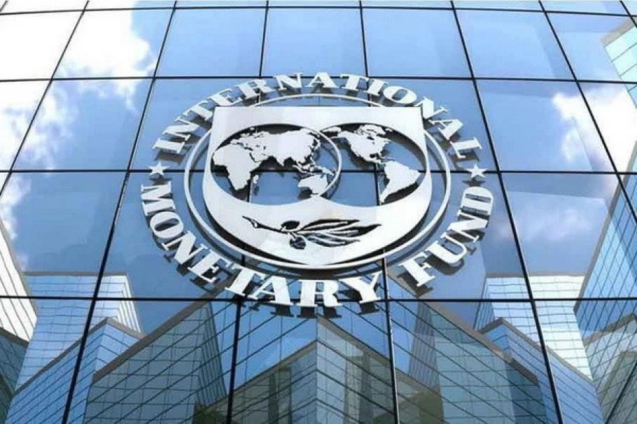The International Monetary Fund has charged African governments to undertake fiscal consolidation due to increasing debt vulnerabilities on the continent.
According to the Fund's October 2021 Regional Economic Outlook report, it is worried about the state of high debts among African countries since it could stifle economic growth.
For instance, Ghana has one of the highest debt on the continent, with debt to Gross Domestic Product ratio estimated at about 76%.
“Half of sub-Saharan Africa’s low-income countries are either in or at high risk of debt distress. And more countries may find themselves under future pressure as debt-service payments account for an increasing share of government resources”, Abebe Aemro Selassie, Head of Communications at the IMF disclosed in a briefing to climax the World Bank/IMF spring meetings
Overall, the Fund is predicting public debt to decline slightly this year, but will still remain high compared to pre-Covid-19 pandemic level.
Additionally, it said many African countries may struggle to repay their loans as interest payments is consuming chunk of government resources.
In Ghana, debt servicing or interest payment is the largest expenditure component as of today.
Against this backdrop, Mr. Selassie pointed to a number of policy priorities, saying “the difficult policy environment that authorities faced before the crisis has been made more demanding by the crisis”.
Policymakers therefore face three key fiscal challenges. They include tackling the region’s pressing development spending needs, containing public debt; and mobilizing tax revenues in circumstances where additional measures are generally unpopular.
Meeting these goals, Mr. Abebe Aemro Selassie said has never been easy and entails a difficult balancing act, adding “for most countries, urgent policy priorities include spending prioritization, revenue mobilization, enhanced credibility, and an improved business climate.”
Region’s vast potential remains undiminished
Looking further ahead, the IMF Communications Director, said the region’s vast potential remains undiminished.
But he noted that the threat of climate change—and the global process of energy transition—suggest that sub-Saharan Africa may need to adopt a more innovative and greener growth model. This presents both challenges and opportunities, and it underscores the need for bold transformative reforms and continued external funding. Such measures may not be easy, but they are key prerequisites of the long-promised African century.
Sub Saharan Africa to grow at a rate of 3.7% in 2021
Sub-Saharan Africa is also projected to grow by 3.7% in 2021 and 3.8% in 2022 – a welcome but relatively modest recovery, suggesting that divergence with the rest of the world will persist over the medium term.
The Fund said the Covid-19 crisis has highlighted key disparities in resilience between countries in sub-Saharan Africa and has also exacerbated preexisting vulnerabilities and inequality within each country. Moreover, food price inflation threatens to jeopardize previous gains in food security and exacerbate social and political instability.
Latest Stories
-
AG moves to strike out suspended CJ’s fresh challenge to removal petition
3 hours -
Over 200 prophecies submitted since national directive – Presidential Envoy reveals
3 hours -
Samson Lardy Ayenini to speak at CoMSSAFest 2025 seminar
3 hours -
Justice Oppong recalled to the bench as Prof Atuguba takes over Ghana School of Law
3 hours -
Stronger legislation needed for forensic, DNA testing – Expert
3 hours -
Defamation case: Lawyer for Dua Agyeman cross examines GTEC official
3 hours -
Three arrested in Accra over possession, manufacture of illegal guns
4 hours -
Our father is irreplaceable – Omane Boamah’s children pay emotional tribute at vigil
4 hours -
‘Daddy, why did you leave so soon?’ – Omane Boamah’s children mourn
4 hours -
Akufo-Addo pays tribute to late Asantehemaa Nana Konadu Yiadom III
4 hours -
UN-Habitat partners with Anloga District to protect coastal towns from climate threats
4 hours -
Prices of petrol and LPG to go up; Diesel to fall from August 16
5 hours -
AfricaHPO, MoE, and GES launch innovative anti-bullying and mental health drive in Ghana’s schools
5 hours -
Ghana Mineworkers’ Union raises red flag over casualisation in mining sector, urges gov’t to act
5 hours -
Prince Adu-Owusu: When a quiet love finally spoke
6 hours

